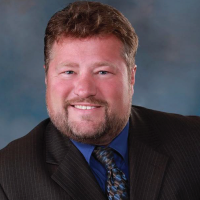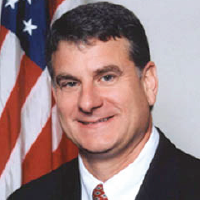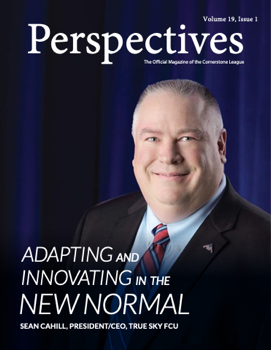

First Virtual Texas GAC Provides In-Depth Look at CU Priorities
The first virtual Texas Governmental Affairs Conference was held March 22 and featured visiting Texas state representatives, a special roundtable discussion between the Texas Credit Union Department and National Credit Union
Administration, a Q&A session, and a legislative update from Cornerstone League leaders. The event was hosted by Texas Credit Union Association and Executive Director Gili Carter.
Card Skimmers
 Rep. Mary Ann Perez (D-Pasadena) discussed her bill, HB 2106, which she called a “clean-up bill” for those passed in
2019. HB 2106 relates to the prevention, identification, investigation, and enforcement of payment card fraud and provides a civil penalty. Card skimming is the use of electronic card devices used to steal credit
card information from consumers and results in millions of dollars in losses for financial institutions.
Rep. Mary Ann Perez (D-Pasadena) discussed her bill, HB 2106, which she called a “clean-up bill” for those passed in
2019. HB 2106 relates to the prevention, identification, investigation, and enforcement of payment card fraud and provides a civil penalty. Card skimming is the use of electronic card devices used to steal credit
card information from consumers and results in millions of dollars in losses for financial institutions.
Perez was able to pass three laws in 2019 through the House of Representatives after months of negotiations with merchants, law enforcement agencies, and financial institutions. HB 2945 related to payment card skimmers on motor fuel dispensers and to creating a payment fraud fusion center; imposing civil penalties; and creating criminal offenses. HB 2624 authorized prosecution and HB 2625 provided penalties to criminals.
“We were able to get more than 100 cosponsors on these bills, which passed the House unanimously and the Senate unanimously minus one,” Perez said. “It only takes seconds to install a card
skimming device, which can steal information from 30 to 100 cards per day. Texas makes up 30% to 40% of all card skimming thefts, and already these bills have helped law enforcement capture criminals.”
Credit Union Department and Sunset
 Rep. Stan Lambert (R-Abilene) is a
member of the House Committee on Pensions, Investments, and Financial Services and the Texas Sunset Advisory Commission. He spoke to Texas GAC attendees about the sunset process and specifically about the probability
of hearing the recommendations for the Texas Credit Union Department, as laid out by the Commission last year.
Rep. Stan Lambert (R-Abilene) is a
member of the House Committee on Pensions, Investments, and Financial Services and the Texas Sunset Advisory Commission. He spoke to Texas GAC attendees about the sunset process and specifically about the probability
of hearing the recommendations for the Texas Credit Union Department, as laid out by the Commission last year.
“The sunset process was a bit different this session because of COVID, but we were able to achieve 95% of our objectives,” Lambert said. “We think the recommendations [on TCUD] were credible and on target,
and we now need to move the sunset bill through the committee process.”
“Chairman Rafael Anchía has given us an early layout date and assured us it won’t get too late in the calendar,” Lambert added. “We will be diligent in holding off any attempted changes and
look forward to robust dialogue, but we anticipate this will go smoothly.”
“I don’t foresee any problems, but I’m always cautious in my optimism,” said Texas Credit Union Department Commissioner John Kolhoff about the sunset bills in the Texas Legislature. “Everything looks noncontroversial
and benign, and we’re completely satisfied with both House and Senate bills; but things can change because we have a long way to go before these are final bills signed by the governor.”
Larry Gonzalez, who previously served as chairman of Sunset Advisory Commission, said that from his perspective, after almost 18 months of study, “The Sunset Commission recognized how well the Credit Union Department was run and understood that the recommendations were right.”
“It’s not a bad idea to have an independent look at how you operate every 12 years,” Gonzalez added. “It’s disruptive to how you do business, so you want to do the best you can right up front. It’s noteworthy
that the Department is already knocking out the recommendations. That shows how efficiently and well-run the Department is.”
Regulatory Roundtable
Commissioner Kolhoff and National Credit Union Administration Regional Director Keith Morton held roundtable discussions on the Community Reinvestment Act (CRA); current expected credit losses (CECL); Southwest
Corporate capital distributions; diversity, equity, and inclusion (DEI); and field-of-membership (FOM) expandability.
“CRA for all depositories is a bill we’re watching,” Kolhoff said of SB 1714, by Texas Sen. Royce West (D). “There’s no House bill related to it, but we have concerns. First, this would be an application of CRA to a state-chartered credit union, which would create a disadvantage because there’s no federal requirement for the same. Rulemaking authority would be given to the director of banking and the Texas finance commission, which wouldn’t make sense after the Credit Union Department has gone through sunset and demonstrated sufficient regulatory oversight. If it does go through, enforcement and exam authority should be under the Credit Union Department.”
 Kolhoff has
requested time in the senator’s office to discuss the implications of the bill. “Implementation would be unfair to credit unions, but it would be really unfair to credit unions with geographic
fields of membership,” he said. “We have many institutions that are religious or employment based, and something like this CRA bill would not be appropriate.”
Kolhoff has
requested time in the senator’s office to discuss the implications of the bill. “Implementation would be unfair to credit unions, but it would be really unfair to credit unions with geographic
fields of membership,” he said. “We have many institutions that are religious or employment based, and something like this CRA bill would not be appropriate.”
He added that about 1,500 credit union members move to Texas per day. “Field of membership is expandable to an entire state and doesn’t have to be the state the institution was chartered in,” Kolhoff said. “We
want to come up with a plan for what that should look like, but there’s a local service area requirement that many other states have removed.”
“With our COVID experience, we know that while branches are important to members, most people use digital channels,” Kolhoff added. “To tie an institution to a local service area, further tied
to a branch, doesn’t necessarily make sense anymore and becomes a safety and soundness concern. Rural areas cannot necessarily put in a branch and make it profitable, but credit unions with an expanded
FOM could provide many of the digital services the community would need.”
 Morton pointed to
his experience with disaster recovery and planning. “I want to acknowledge that since COVID, there’s been a lot of growth at credit unions,” he said. “About 88% of credit unions are
operating profitably, despite rapid growth that’s in part due to the pandemic. If you find yourself getting close to PCA, reach out to us or your examiner, and we will work with you if the reason is due to pandemic.”
Morton pointed to
his experience with disaster recovery and planning. “I want to acknowledge that since COVID, there’s been a lot of growth at credit unions,” he said. “About 88% of credit unions are
operating profitably, despite rapid growth that’s in part due to the pandemic. If you find yourself getting close to PCA, reach out to us or your examiner, and we will work with you if the reason is due to pandemic.”
Morton discussed in-person versus virtual examinations this fall and beyond, as the country moves to a post-COVID world. “We will bring office staff back into the office beginning in April, but for exams, sometimes it’s best to do on-site work.”
Before the pandemic, NCUA was moving to doing more remote exams. “About 9-10% of exam time was being done at institutions, but through COVID it was closer to 100%,” Morton said. “Obviously, we’ll have
to do a combination of those things going forward, up to probably 40%–50% on site.”
Some of that has to do with the efficiency and security of the remote document transfer process with their servers and utilizing some of the credit union’s processes, refining as they go
forward.
As to diversity, equity, and inclusion concerns during the examinations for regulatory purposes, Morton said NCUA doesn’t have exam steps related to DEI at the present time, though credit unions should definitely fill out
the NCUA surveys, so the agency can understand how credit unions are doing in that space.
“It’s not an exam issue, per se, though we do believe it’s a critical function and what credit unions should be engaged in,” Morton said. “We have a responsibility out of Dodd-Frank to track how credit
unions are doing with women and minorities.”
“The greater DEI issue has been a strong part of the credit union movement since it began, and we continue to watch that develop and evolve,” Kolhoff said. “But we can always get better. I’m proud of what Texas institutions have done, and we look for how they’re going to improve DEI moving forward; but we don’t currently have any standards for DEI.”
Morton raised the issue of last week’s NCUA board announcement about a distribution of capital to Southwest Capital holders. The distributions were approved under his authority as the liquidating agent.
“We’ll return the funds in April, based on the March 31 call report,” Morton said. “Specifically, 22.9% will be returned.”
The distributions are administered separate and apart from the regulating agency, Morton explained. The agency maintains separate books and records for each failed credit union. He said he’ll reevaluate whether they’ll be positioned to make a distribution to capital holders in November.
“We can only make a distribution if cash exists,” Morton said. “We have to pay senior claims first. We’ll know more come June 30. I don’t believe it’s in my interest or credit unions’ to
hold on to the cash, so if we have cash and I can make amenable distributions, I’ll do that with thought to a September time frame.”
Distribution is 25.6% to member capital holders at Members United. “Whatever’s left in the estate, doesn’t go to the Share Insurance Fund; it goes back on a pro rata basis to the members,”
Morton said.
If you have any questions about the information contained in this article, please contact Gili Carter at 469-385-6488.
Subscribe
Sign up to the receive the weekly Leaguer email. Existing subscribers can manage their subscription.

